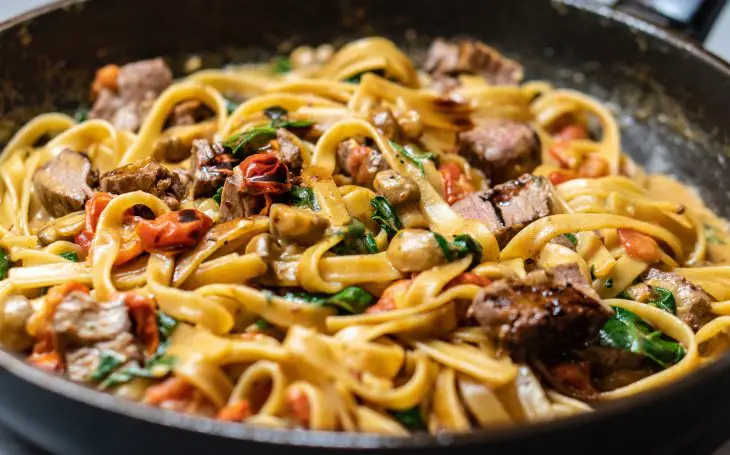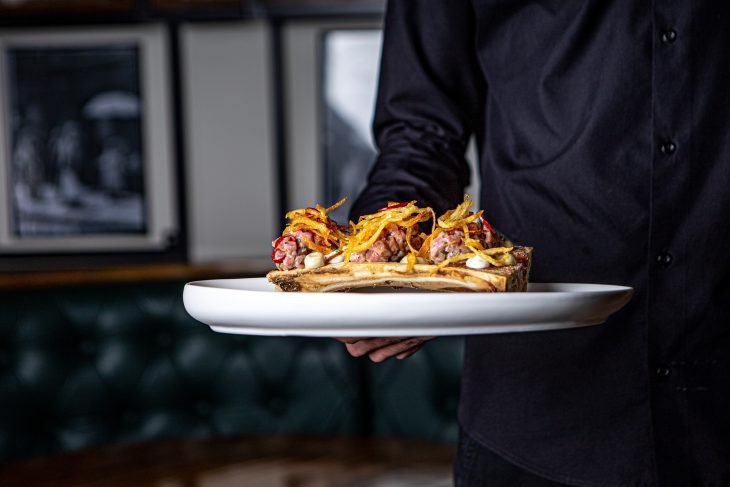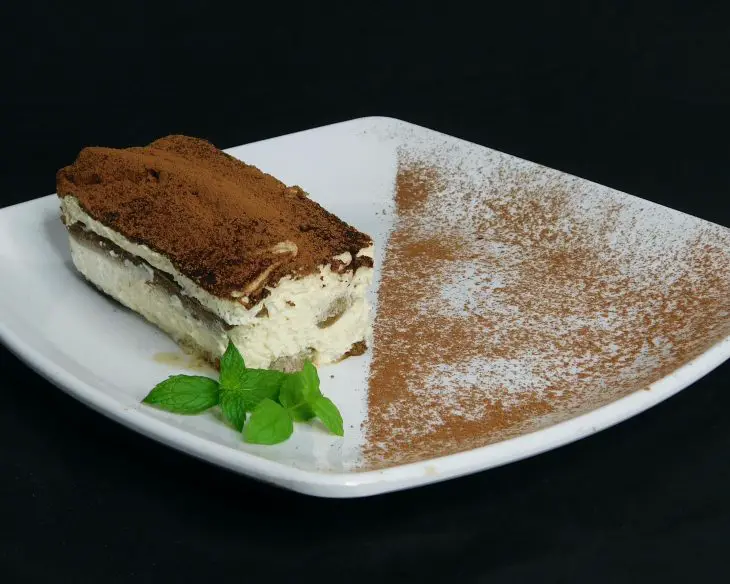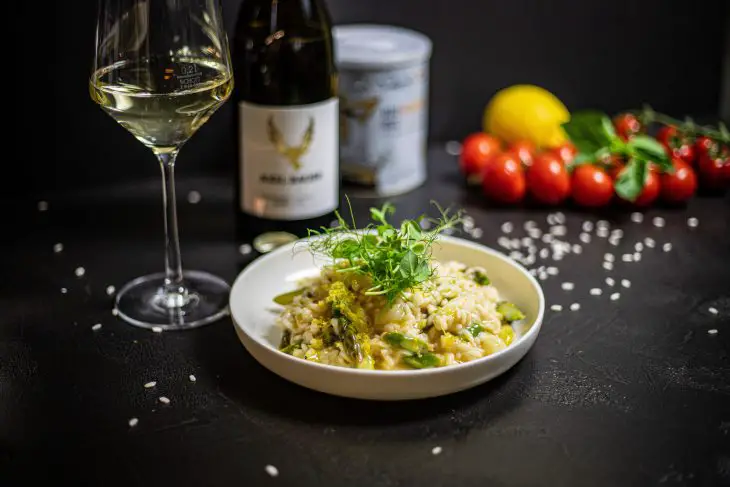When you fall pregnant, it is important that you do the research to inform yourself on how best to keep your pregnancy healthy and safe. Many pregnant women have questions about cooking with wine while pregnant, which is why we’ve dedicated this post to answering just that. Cooking with wine, cider, or beer is often done to impart a particular flavor to a dish. Many dishes and desserts consumed in various cultures have alcoholic drinks like these added to them. So, is it ever okay for you to consume foods steeped in alcohol? How much is too much? We’re ready to provide answers to those questions right now!

Can You Eat Alcohol in Food When Pregnant?
The answer to this question is posed often. The answer to it is – maybe.
Let me explain why.
According to the Centers for Disease Control and Prevention (CDC), there is no safe amount of alcohol that can be consumed by a pregnant woman.
Why would this be the case? The main risk of consuming alcohol while pregnant is that your baby could acquire what’s known as Fetal Alcohol Spectrum Disorders, or FASDs. This occurs when the alcohol you drink is passed through the umbilical cord to your baby. The effect of alcohol you consume while pregnant will then adversely affect your baby and cause a variety of complications to occur.
These issues include:
- A smaller head size compared to other infants the same age
- Low body weight when compared to other infants the same age
- Shorter stature than others their same age
- Lack of coordination
- Hyperactivity
- Trouble concentrating
- Difficulty in school
- Low IQ
- Poor reasoning skills
- Vision problems
- Hearing problems
- Speech delays
- Learning disabilities
- Sleep issues
- Unique facial features
- And much more…
Aside from the above ramifications of consuming alcohol when pregnant, there are other risks that threaten your baby and his or her quality of life. Besides FASDs, consuming alcohol while pregnant can lead to mental retardation and birth defects. Therefore, staying informed about how drinking alcohol can negatively affect your unborn baby is of the utmost importance for your baby’s well-being.
How Much Alcohol Is Too Much When Pregnant?
You may not like what I’m going to say here, but there’s no amount of alcohol that has been proven safe for pregnancy. Unlike caffeine of which you are allotted 200mg (hello Thai tea and hot chocolate!) consuming wine or other alcoholic beverages have no minimum allowance.
Much of the strict regulations on alcohol consumed by pregnant women are dictated by the fact that studies are unclear as to how much alcohol causes risks to the fetus to occur. Therefore, it is easier to simply say that you should avoid all alcohol while pregnant unless your doctor gives you the thumbs up to do so.
Even if your doctor or midwife says a glass or two of wine during pregnancy is safe, be sure to use your best discretion. Again, scientists have not yet decided upon what amount of alcohol is ever safe in pregnancy. Therefore, it really is best to avoid alcohol altogether.
Can I Cook With Wine While Pregnant?
You may be wondering, “Can I cook with wine while pregnant?” The answer to this is yes and no.
It’s already been established that drinking wine, cider, beer, or any type of liquor or spirit isn’t advised during pregnancy. But what about when cooking? Won’t most of the alcohol cook off?
Well, there are several facets to this question. Let’s see if we can tackle them, one at a time.
Simmering Time
Does alcohol actually cook off?
Alcohol does cook off in some cases. But the process may take longer than you think. Without getting too technical, you can expect most of the alcohol in a dish to be cooked off in a stew or other simmered entrée within about 90 minutes.
This means that if you choose to prepare a dish with wine in it, it will need to cook for at least 90 minutes before you can guess that the alcohol has cooked off.
Know also that the longer your entrée simmers, the more alcohol is burned off. So, if you add wine to a dish and simmer it for a couple of hours, that may be an even better idea.

Amount of Alcohol Present in a Dish
In addition to simmering times, you’ll also want to pay attention to how much alcohol is in a dish. Common sense tells us that the more alcohol is present in a dish, the longer it would take to burn off. Therefore, if a recipe only calls for a splash or two of wine then you aren’t likely to experience many pregnancy-related issues. This is especially if you’ve cooked the dish for the recommended amount of time.
Having said that, entrees that call for several cups of wine are much riskier to consume. In these instances, it may be better to use an alcoholic substitution.
We’ve listed some of the most common non-alcoholic substitutions for your favorite alcoholic drinks in the designated segment below, so be sure to continue reading!
Note: If you are out to eat and are not sure how much alcohol is present in a meal, don’t consume it while pregnant. If you aren’t sure whether or not a dish you want to order has alcohol, always have your server check with the chef.
Do Some Foods Retain More Alcohol Than Others?
Yes! There are some foods that retain more alcohol than others. For example, dishes that may have been cooked for 90 minutes or longer but call for wine added after the dish has cooked would not be safe to eat. Moreover, desserts will retain more alcohol content than will food that has been simmered in a pot.
Note: Beware of adding certain warming spices to your desserts that may prove unsafe for pregnancy. Some spices, like cinnamon, when taken in large amounts, may cause complications.

Differences in Alcoholic Drinks
Of course, not all alcoholic drinks are created equally.
Wine, beer, and cider may be okay to consume when simmered in food that has been cooked for 90 minutes or longer, but adding spirits and liquor to foods isn’t advised.
Spirits and liquor are not the same, however, they both are stronger alcoholic beverages than beer, wine, or alcoholic cider. Thus, we’d advise you to steer clear of all liquor and spirits, even if it has been “cooked off”, for the health and safety of your baby.
The following are types of alcohol that can be classified as either liquor or spirit:
- Brandy
- Tequila
- Rum
- Vodka
- Whiskey
- Gin
- Scotch
- Bourbon
Alcoholic Substitutes For Cooking
All of this begs the question, “What non-alcohol substitutes can be used when cooking while pregnant?” Thankfully, there are many!
For example, you can use chicken broth for wine, apple juice or pear juice for brandy and bourbon, and an equal blend of apple cider vinegar and water for sherry.
If you still have questions about which works best for different dishes, be sure to do the research. Using a non-alcoholic substitute instead of rolling the dice by using the real thing can really lower the risks of something scary happening to your baby.

Proper Cooking Methods
When preparing food with wine in it, be sure to use proper cooking techniques. The following are techniques that can lower the amount of wine that remains in your cooked dish.
Use a Large Pot (or Pan)
When cooking your dish containing wine, be sure to use a large pot. A larger pot will encourage evaporation of the wine faster than a smaller pot.
Don’t Cover the Pot
Along with using a larger pot, you’ll also want to keep from covering the pot as much as possible. This allows the wine-containing liquid to escape which can break down the alcohol content faster.
Steer Clear of Recipes With Alcohol Added Towards the End
I said it before and I’ll say it again: don’t consume entrees or desserts that add the wine last! This is about the same as taking a swig of the drink straight. Remember that the dish should be cooked for at least 90 minutes or more with the wine added in order for it to be rendered safe.
Be Suspicious of Dessert
Desserts seem so much more decadent when you’re pregnant don’t they? And a little bit of added booze only makes it better, right? In terms of taste, maybe, but not with a baby in tow. Desserts that contain wine don’t break down the alcohol as well as simmered dishes do.
Do yourself a favor and whip up some yummy pregnancy announcement cookies instead!
Extend the Cooking Time (If You Can)
If whatever you are cooking calls for simmering up to 1 hour, see if you can push it another 30 minutes without compromising the flavor or consistency. Ninety minutes or more is key when cooking off wine alcohol.
Accidentally Ate Dessert With Alcohol While Pregnant – Now What?
First and foremost, try not to panic. Your emotional state matters, especially during pregnancy.
Next, remember to abstain from drinking additional alcohol, or consuming any foods containing alcohol, especially in the near future. Studies show that eating and drinking are good ways to slow the absorption of alcohol into the bloodstream. Therefore, drinking lots of water and consuming additional non-alcoholic foods may help.
Lastly, depending on the amount of alcohol you think was present in the dessert (or entrée), you may wish to consult with your doctor to share your concerns. He or she will then give you the best-tailored advice to fit your situation and needs.

Other Types of Alcohol to Watch For When Pregnant
Cooking With White Wine While Pregnant
If you are cooking with white wine while pregnant, be sure to follow the above guidelines to make sure your entrée or dessert stays safe. If the dish is savory, you can easily replace the white wine with chicken broth, a splash or two of lemon juice, or apple cider vinegar.
Chinese Cooking Wine Safe For Pregnancy
Treat Chinese cooking wine the same way you would any other type of wine. And be careful–Some Chinese restaurants that use this type of wine may be cooking your dish rapidly over high heat. This means there could be a substantial amount of alcohol still left in the dish.
Can I Cook With Cooking Wine While Pregnant?
The only difference between “cooking wine” and regular wine is a matter of quality. Regular wine is of a higher quality and has a better flavor than cooking wine. Still, you should treat cooking wine the same way you would treat regular wine when integrating it into your meals.
Wine in Risotto When Pregnant
If you’re craving risotto while pregnant, be aware that the recipe typically calls for white wine. If you are the one preparing your own risotto for a cozy night in, you’ll need to tweak it. We recommend that you replace the wine with chicken stock and a bit of lemon juice. Otherwise, cooking a dish like risotto for 90 minutes may prove too long, and may end up compromising the taste and consistency of the dish.

Cooking With Wine While Pregnant Might Be Risky Business…
Though anything steeped in alcohol may seem particularly enticing while you are pregnant, the fact of the matter is that consuming alcohol while pregnant isn’t ideal. Rather than take the risk, we recommend you omit the alcohol in your dish completely. Otherwise, you should be sure to cook the dish using the protocol mentioned in this article. This will ensure it is safe for you and your baby.
FAQs
There is no amount of alcohol that has been proven safe for pregnant mothers. Therefore, we don’t recommend that you take the risk.
Cooking with wine can be safe while pregnant if you cook the dish for 90 minutes or more after the alcohol has been added. We also recommend that you steer clear of liquor and spirits, as these are stronger drinks than your typical wine, cider, or beer.
If your wine sauce has been cooked with the wine in it for 90 minutes or more, then it may be safe to consume. However, wine sauce that calls for alcohol added near the end of cooking is dangerous. You should also avoid sauces that have a strong taste of wine after being cooked.

Leave a Reply